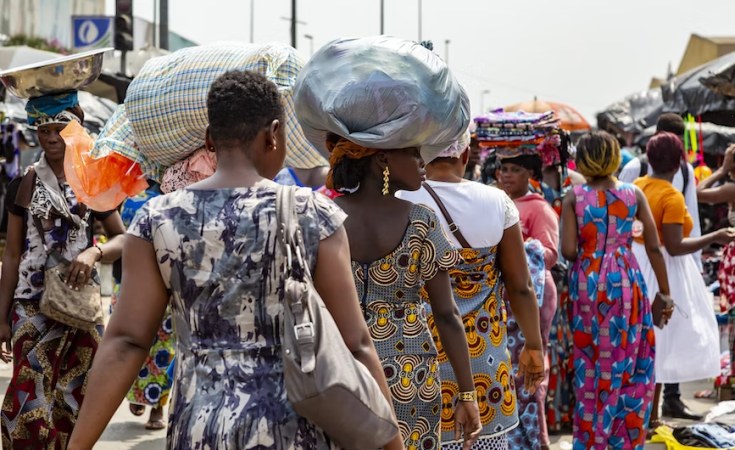The meeting between Chinese Premier Li Qiang and his Cote d'Ivoire counterpart Patrick Achi at the Boao Forum for Asia (BFA) annual conference in Hainan province in south China on March 29 reflected the 2023 BFA theme, "An Uncertain World: Solidarity and Cooperation for Development amid Challenges." With the world undergoing serious unpredictability with increasing global challenges, it was a statement of the steadfastness of the bilateral relations.
Francophone Cote d'Ivoire is endowed with seaside resorts, rainforests and a French colonial heritage. Its major city Abidjan is located on the Atlantic coast. Unfortunately, while the West African country has vast economic potential, it has been restrained by a "colonial pact" with former colonizer France since gaining independence in 1960.
It is one of 14 countries that until 2019 owed France debts since liberation. The others include Benin, Burkina Faso, Senegal and Gabon. Through the pact, France forced these countries to "deposit half of their foreign exchange reserves with the Central Bank of France," under the control of the French finance minister.
Achi's China visit serves to solidify Cote d'Ivoire's newfound independence from neo-colonialism and experts see China as a great motivator in this shift. The strengthened relations are a window through which one can view the holistic China-Africa relations over the years, both at a bilateral and pan-African level.
One is the growing of their economic cooperation. Imports from China rose from $100 million in 2002 to more than $1.57 billion in 2020. China's investment in Cote d'Ivoire is estimated at $7.5 billion, mostly in infrastructure projects. Many Chinese companies have won bids to build major infrastructure projects.
Another key indicator of the thriving bilateral relations is security cooperation. The Cote d'Ivoire Army has signed a new contract with China North Industries Corporation, one of the Chinese army's main suppliers, to supply 50 armored vehicles. These and other military assets are to support Cote d'Ivoire's anti-terrorist operations.
Bilateral diplomatic activity has also increased in recent years. In December 2022, Chinese President Xi Jinping and Cote d'Ivoire's President Alassane Ouattara discussed expanding bilateral cooperation. Ouattara reiterated his support for the one-China principle, while Xi restated China's commitment to long-term trade and cooperation with Africa's biggest exporter of cocoa and cashew nuts.
The Boao Forum for Asia Annual Conference 2023 venue in Boao, south China's Hainan Province, March 27, 2023. /CFP
Just like for the rest of Africa, China has been instrumental in rebuilding Cote d'Ivoire's economy after the devastating COVID-19 pandemic. The latter's government reopened its borders in February 2023 after a three-year lockdown. Yamoussoukro, the administrative capital, now seeks Chinese companies to not only complete the pending infrastructural projects started before the pandemic, but also steer Chinese investment to its energy and technology sectors. The partners are planning to deepen cooperation in investment, agriculture, education and youth affairs.
Moreover, Cote d'Ivoire is seeking an increase in its exports to China, the second largest economy. Data from the Observatory of Economic Complexity shows that in 2020, the main products it exported to China were rubber ($216 million), manganese ore ($152 million) and crude oil ($86.6 million). Exports to China have grown at an annual rate of 18.2 percent from $7.38 million in 1995 to $574 million in 2021.
Ouattara's visit to China in 2018 was a milestone in China-Cote d'Ivoire relations. It showed the weight that China gives to this partnership.
Cote d'Ivoire is a strategic gateway to Africa. The mainly Chinese-funded expansion of the Port of Abidjan and the opening of new shipping docks in March 2022 offer China a door to West Africa. They have also turned Cote d'Ivoire into a major shipping hub on the continent. Previously, shipments from Asia, Europe and the U.S. had to stop in South Africa before using smaller containerized cargo to the rest of the region.
The tight bilateral ties are symbolic of Africa's great support for the Belt and Road Initiative, the Global Development Initiative and the Global Security Initiative. In addition, it is an affirmation of the adherence to one-China principle, particularly at this time when the U.S. and its allies have doubled down on their belligerence on the Taiwan question.
Editor's note: Stephen Ndegwa is the executive director of South-South Dialogues, a Nairobi-based communications development think tank. The article reflects the author's opinions and not necessarily those of Capital FM.


